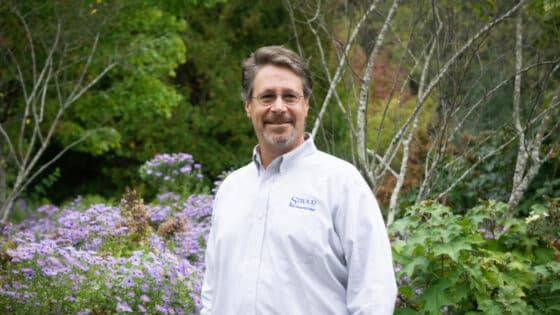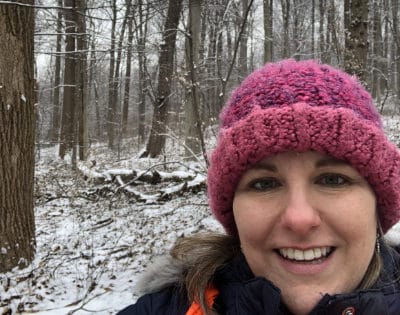
Assistant Director, Vice President
Administration and Finance Department
Research Scientist
Contact
ensign@stroudcenter.org
tel. 610-910-0041
970 Spencer Road, Avondale, PA 19311
ORCID | Google Scholar | ResearchGate | CV
Interests and Expertise
Scott Ensign is an ecosystem ecologist working to discover how plants, animals, and microbes interact within rivers and how the results of those processes influence how people and society interact with rivers. In collaboration with his colleagues, he makes biogeochemical measurements, performs experiments, and interprets results using statistical models and analysis. Ensign is particularly interested in developing new measurement technologies for aquatic environments, exploring how sea level rise affects rivers, and implementing conservation techniques that improve ecological conditions and the utility people derive from freshwater ecosystems.
Education
- Ph.D., ecology, University of North Carolina at Chapel Hill.
- M.S., ecology, University of North Carolina at Chapel Hill.
- B.A., environmental science, University of North Carolina at Wilmington.
Professional Experience
- Assistant director, Stroud Water Research Center, 2018–present.
- Adjunct assistant professor, Marine, Earth, and Atmospheric Science Department, North Carolina State University, Raleigh, North Carolina, 2013–2018.
- Founder/CEO, Planktos Instruments, LLC, Morehead City, North Carolina, 2013–2018.
- Founder/managing partner, Aquatic Analysis and Consulting, LLC, Wilmington, North Carolina, 2004–2017.
- Research ecologist, National Research Program, United States Geological Survey, Reston, Virginia, 2010–2011.
- Research technician III, Institute of Marine Science, University of North Carolina at Chapel Hill, Morehead City, North Carolina, 2004–2005.
- Research technician II, Institute of Marine Science, University of North Carolina at Wilmington, Wilmington, North Carolina, 1997–2002.
Publications
Head-of-tide bottleneck of particulate material transport from watersheds to estuaries
Comparison of denitrification between river channels and their adjoining tidal freshwater wetlands



